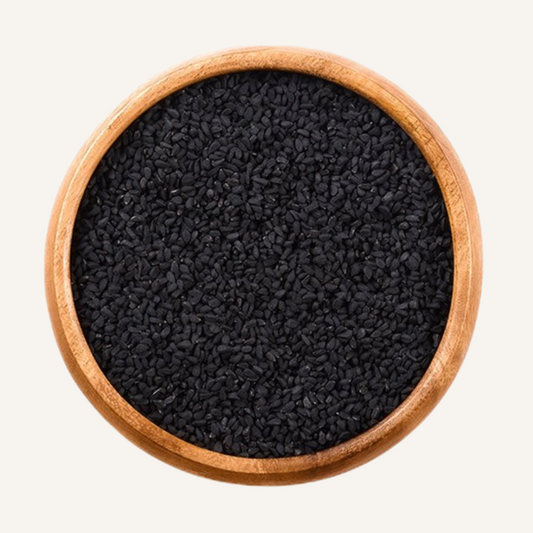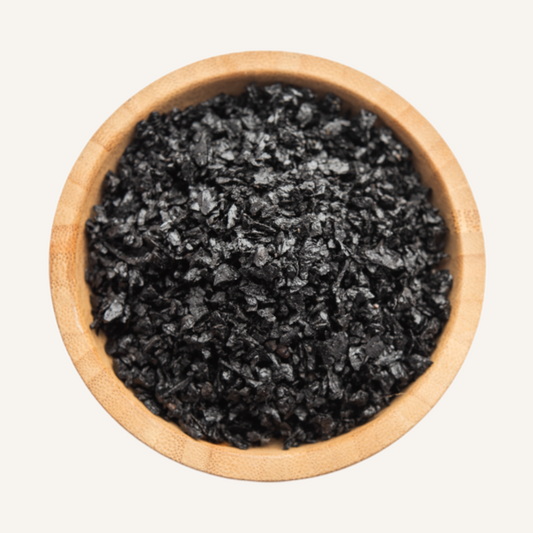
Why Herbal Medicine is Amazing!
Ilyas KhanShare
Natural and Safe
Herbal remedies are derived from plants and are considered to be natural and safe. Unlike pharmaceutical drugs, which are often synthesized in laboratories and may contain synthetic chemicals, herbal remedies are often made from whole plants or plant extracts. Because of this, they are generally considered to be gentler on the body and have fewer side effects. However, it's important to note that some herbs can interact with medications or cause allergic reactions, so it's important to consult with a qualified healthcare provider before starting any new herbal remedies.
Holistic Healing
Herbal medicine takes a holistic approach to healing, meaning that it addresses the whole person – body, mind, and spirit. This approach recognizes that health is not just the absence of disease but also includes mental, emotional, and spiritual wellbeing. Herbal remedies are often chosen based on a person's individual constitution, symptoms, and overall health picture. This means that treatment is tailored to the individual, rather than a one-size-fits-all approach.
Cost-Effective
Herbal remedies are often more cost-effective than conventional medicine. Many herbs can be grown in your own backyard, purchased at a local health food store, or ordered online. In addition, because herbal remedies are often tailored to the individual, the dosage and frequency of use can be adjusted as needed, meaning that less product may be needed over time. This makes herbal remedies an accessible and affordable option for people who are on a tight budget.
Supports Immune Function
Herbal medicine can help support immune function, which is essential for overall health and wellbeing. Certain herbs, such as echinacea, astragalus, and elderberry, have been shown to boost the immune system and help the body fight off infections and illnesses. These herbs can be especially useful during cold and flu season, or when a person is under a lot of stress and their immune system may be weakened.
Can Reduce Stress and Anxiety
Many herbs have a calming effect on the body and can help reduce stress and anxiety. For example, chamomile and lavender are known for their relaxing properties and are often used to promote a good night's sleep. Other herbs, such as ashwagandha and holy basil, are adaptogens, meaning that they help the body adapt to stressors and can support the body's stress response system. These herbs can be especially useful for people who experience chronic stress or anxiety.
Supports Digestive Health
Herbal medicine can also help support digestive health. Certain herbs, such as peppermint and ginger, have been shown to soothe digestive discomfort and reduce bloating and gas. Other herbs, such as dandelion root and milk thistle, can support liver function and aid in the digestion of fats. These herbs can be especially useful for people who experience digestive issues such as acid reflux, irritable bowel syndrome (IBS), or gallbladder problems.
In conclusion, incorporating herbal medicine into your health routine can provide numerous benefits, including natural and safe healing, holistic health support, cost-effectiveness, immune function support, stress and anxiety reduction, and digestive health support. However, it's important to remember that herbal remedies are not a substitute for conventional medical care, and it's important to consult with a qualified healthcare provider before starting any new herbal remedies. With proper guidance, herbal medicine can be a valuable addition to your health and wellness toolkit.
References:
- DeSmet, P. A. G. (1997). Safety of herbal remedies. Advances in Pharmacology, 42, 113– 154. https://doi.org/10.1016/s1054-3589(08)60802-8
- World Health Organization. (2013). WHO traditional medicine strategy 2014–2023. World Health Organization. https://apps.who.int/iris/handle/10665/92455
- Bone, K., & Mills, S. (2013). Principles and practice of phytotherapy. Churchill Livingstone.
- Ross, J. (2004). Herbal medicine: A comprehensive review of 119 common herbs and their medicinal properties. Lippincott Williams & Wilkins.
- Lee, A. (2010). Cost-effectiveness of herbal medicine. In Benzie, I. F. F. & Wachtel-Galor, S. (Eds.), Herbal medicine: Biomolecular and clinical aspects (2nd ed.). CRC Press/Taylor & Francis.
- Longe, J. L. (Ed.). (2006). The Gale encyclopedia of alternative medicine (2nd ed.). Gale Group/Thomson Learning.
- Schapowal, A., & Klein, P. (2006). Echinacea reduces the risk of recurrent respiratory tract infections and complications: A meta-analysis of randomized controlled trials. Advances in Therapy, 23(1), 1– 16. https://doi.org/10.1007/BF02850361
- Zakay-Rones, Z., Thom, E., Wollan, T., & Wadstein, J. (2004). Randomized study of the efficacy and safety of oral elderberry extract in the treatment of influenza A and B virus infections. Journal of International Medical Research, 32(2), 132– 140. https://doi.org/10.1177/147323000403200205
- Chandrasekhar, K., Kapoor, J., & Anishetty, S. (2012). A prospective, randomized double-blind, placebo-controlled study of safety and efficacy of a high-concentration full-spectrum extract of ashwagandha root in reducing stress and anxiety in adults. Indian Journal of Psychological Medicine, 34(3), 255– 262. https://doi.org/10.4103/0253-7176.106022
- Sarris, J., & Wardle, J. (2010). Clinical naturopathy: An evidence-based guide to practice. Churchill Livingstone.
- Kligler, B., & Chaudhary, S. (2007). Peppermint oil. American Family Physician, 75(7), 1027– 1030.
- Murray, M. T., & Pizzorno, J. (2012). The encyclopedia of natural medicine (3rd ed.). Atria Paperback.








